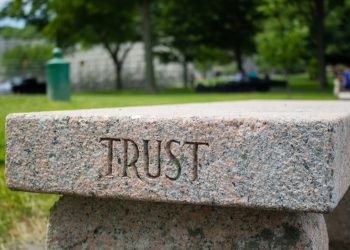No products in the cart.
Charting a Path in Sustainability: Careers in ESG
Explore how to build a rewarding career in Sustainability and ESG roles. Learn about essential skills, certifications, and project ideas to kickstart your journey.
As the world grapples with climate change and social injustice, a new breed of career is emerging—one that marries passion with purpose. Welcome to the realm of sustainability and Environmental, Social, and Governance (ESG) roles. For the ambitious 16 to 35-year-old, these careers not only promise a paycheck, but also a chance to make a tangible difference in the world.
But how does one embark on this green journey? Let’s break it down.
Understanding the Landscape of ESG Careers
ESG roles are as diverse as the challenges they aim to tackle. From financial analysts who assess the sustainability of investment portfolios to consultants who guide companies in reducing their carbon footprints, the opportunities are plentiful. The World Economic Forum has reported a significant increase in demand for ESG professionals, a trend projected to continue as businesses and governments prioritize sustainable practices[1].
Notably, certifications can set candidates apart in this competitive field. The Global Reporting Initiative (GRI) and the Sustainability Accounting Standards Board (SASB) offer frameworks that professionals can leverage. These credentials demonstrate commitment and expertise, crucial in a sector where knowledge is power.
 Career Advice
Career AdviceBuilding Tech Credibility: No Degree, No Problem
Unlock your potential in tech without a CS degree. Learn how certifications, project portfolios, and networking can propel your career.
Read More →The Global Reporting Initiative (GRI) and the Sustainability Accounting Standards Board (SASB) offer frameworks that professionals can leverage.

Skills Required for Success
In addition to certifications, certain skills are non-negotiable. Data proficiency stands out as a cornerstone. As companies increasingly rely on data-driven insights to inform their sustainability initiatives, the ability to analyze and interpret complex datasets is invaluable. According to a report by McKinsey, organizations that harness data effectively can reduce costs and improve their sustainability performance by up to 30%[2].
Moreover, soft skills like communication and collaboration are equally essential. ESG professionals must not only develop strategies but also sell them to various stakeholders—from executives to community members. The ability to articulate the benefits of sustainable practices can be a game changer, turning resistance into support.
Career Entry Points
For those just starting, internships and entry-level roles are vital. NGOs and startups often look for passionate individuals willing to learn. Consider volunteering for local environmental initiatives or seeking internships within organizations focused on social impact. These experiences provide not only valuable skills but also networking opportunities that can propel your career forward.
Finance and consulting are two sectors ripe for ESG talent. Investment firms are increasingly incorporating ESG factors into their decision-making processes, while consulting firms are advising clients on sustainable business practices. As you explore these fields, think about what excites you most—whether it’s analyzing data, developing strategies, or engaging with communities.
 Career Development
Career DevelopmentILO Highlights Steven Sim’s Role in ASEAN Skills Development at GSF 2025
At GSF 2025, ILO Director-General praised Steven Sim's efforts in advancing ASEAN's skills agenda, impacting youth leadership and professional development.
Read More →Project Ideas to Get Started
Feeling overwhelmed by where to begin? Start small. Here are a few project ideas that can showcase your commitment to sustainability:
- Local Clean-Up Initiatives: Organize or participate in community clean-up events to raise awareness and foster a sense of community.
- Sustainability Reports: Create a mock sustainability report for a local business, highlighting areas for improvement and offering tangible solutions.
- Social Media Campaigns: Use platforms like Instagram or TikTok to promote sustainable practices, sharing tips and engaging your peers.
- Research Projects: Collaborate with academic institutions to conduct research on local environmental issues, contributing to community knowledge.
- Workshops and Seminars: Host educational sessions on sustainability topics, inviting local experts to share their insights.
Each of these projects can help you build a portfolio that demonstrates your skills and passion, making you a more attractive candidate in the job market.
Workshops and Seminars: Host educational sessions on sustainability topics, inviting local experts to share their insights.
The Future of ESG Careers
As we look ahead, the future of ESG careers appears bright. According to the International Labour Organization, the green economy is expected to create millions of new jobs by 2030[3]. This is not just about saving the planet; it’s about building a sustainable economy that works for everyone.
With the right skills, certifications, and experience, you can carve out a niche in this exciting field. More importantly, you can be part of a movement that prioritizes people and the planet over short-term profits. As you embark on this journey, remember: each step you take is a step towards a more sustainable future.
Remote Revolution: The Best Cities for Digital Nomads in 2024
Dive into the digital nomad revolution with our comprehensive guide to the best cities for remote work in 2024. From…
Read More →Get Involved
Ready to take the plunge? Explore online platforms like Coursera and LinkedIn Learning for courses on ESG topics. Connect with professionals in the field through networking events, either in-person or virtually. Every interaction can be a stepping stone toward your dream career. The world is waiting for you to lead the charge in sustainability—are you ready?











